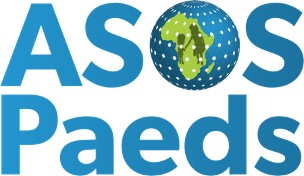
Background
Access to safe surgery is a basic human right. This is highlighted by the work of the Lancet Commission on Global Surgery. There is a large burden of surgical disease in the paediatric surgical population with a large unmet need. In Africa, children comprise a significant proportion of the population with approximately 50% of the population being ≤19 years old. Limited data from Africa suggests the risk factors for, incidence and outcomes associated with paediatric surgical complications differ from HICs.
The African Surgical Outcomes Study (ASOS) has described surgical outcomes in adult patients in Africa.
There is a need to determine the burden of the complications in paediatric surgical patients in Africa, and the risk factors for and the type of complications experienced. If we do this, we will be able to target appropriate interventions to improve surgical outcomes for children in Africa. We have the capacity to do this important work, through the African Perioperative Research Group (APORG) group.
Study Objective
To determine the incidence of in-hospital postoperative complications up to 30 days post-surgery in paediatric surgical patients under <18 years in Africa.
Study Design
Fourteen-day, international African multi-centre prospective cohort study of paediatric patients (under <18 years) undergoing surgery. This study will be registered on ClinicalTrials.gov. Patients will be followed up for a maximum of 30 days.
The primary outcome is the incidence of in-hospital postoperative complications in paediatric surgical patients in Africa. Secondary outcome measures include mortality rate for patients <18 years undergoing surgery in Africa, risk factors associated with in-hospital complications, time from first presentation to operation, incidence of severe intraoperative critical incidents, level of qualification of anesthesia and surgery providers and number of specialists per paediatric population, and rate of admission to critical care.
The intention is to present a representative sample of paediatric surgical outcomes across all African countries and territories. This study will run from September 2021 until September 2022.
Prepatory Work
Prior leadership in the South African Paediatric Surgical Outcomes Study (SAPSOS) and the African Surgical Outcomes Study (ASOS) have ensured tested resource resources necessary to run this study. This will be the first continental collaborative study of paediatric surgical outcomes in Africa.
Importance of this Study
Surgery is associated with significant morbidity. Accurate information regarding the burden of morbidity and mortality associated with paediatric surgery in Africa would allow for appropriate allocation of resources in the future, and the implementation of interventions to improve paediatric patient outcomes. This study therefore has important public health implications for Africa. This study will also provide the necessary data to develop future collaborative work to improve African surgical paediatric patient outcomes.
Study Dates
National lead will determine (with their team) the start date for their country
Declare your interest
Please click on the link below to declare your interest for the ASOS-Paeds study.
